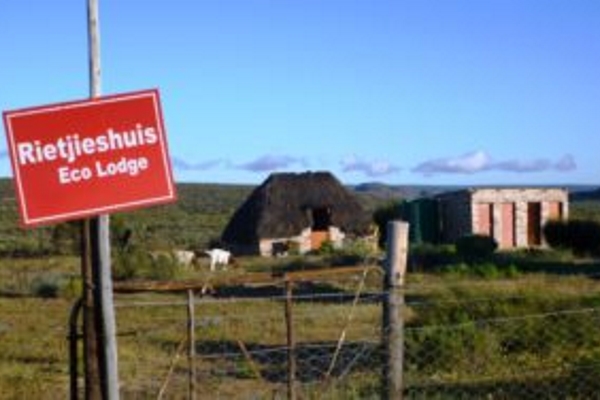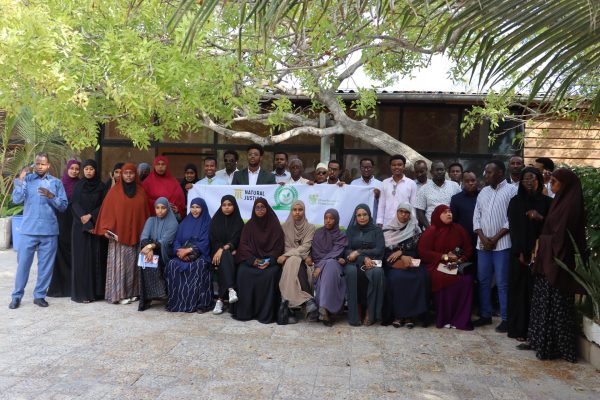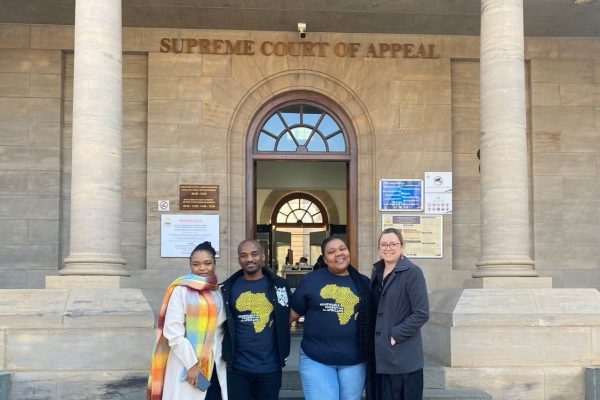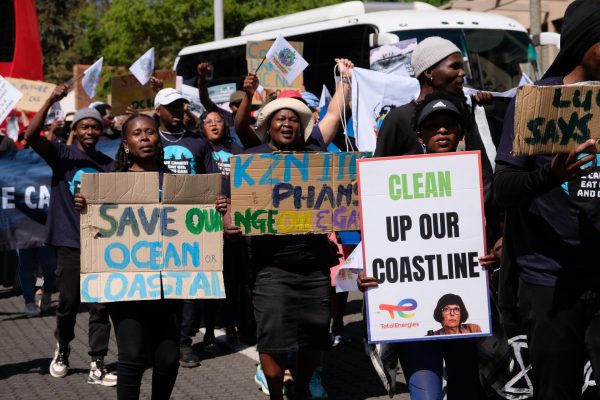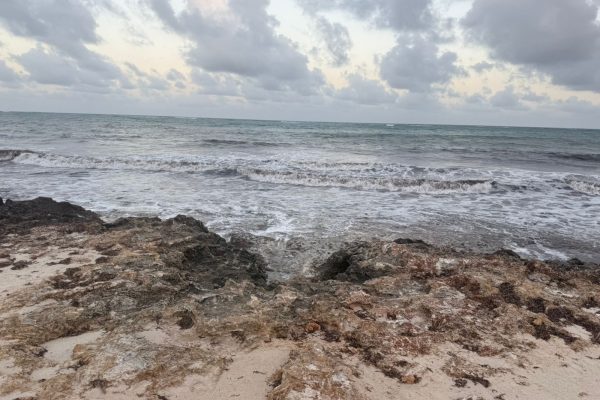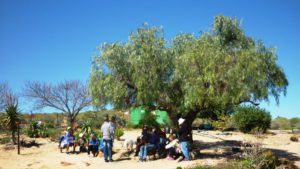
The peer-to-peer learning exchange between the Kuboes youth group and the Nieuwoudtville community took place between 2-4 September, 2016. Natural Justice had reached out to the local environmental NGOs Indigo Development & Change and the Environmental Monitoring Group (EMG) who have been supporting the small-scale Rooibos farmers to adapt to climate change through community-based approaches. Natural Justice’s Dr Cath Traynor and intern Julia Röttinger, joined eight Kuboes youth and Community Co-Researchers Gerren De Wet (Kuboes) and Reino Le Fleur (Vredendal) in Nieuwoudtville, to learn more about their climate change adaptation processes and share perspectives from the Richtersveld.
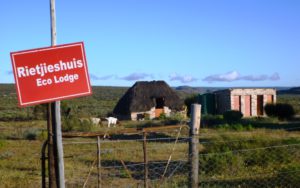
After a warm welcome on Friday afternoon and brief introduction to the NGOs’ work Shannon Parring, Albert ‘Berty’ Kooman (Indigo – Development & Change), Siyabonga Myeza (EMG) took everyone to the Rietjiehuis Eco Lodge in Melkkraal where they had a traditional potjekos and spent the next two nights. The Eco Lodge is run by Marie Syster and consists of a few traditional reed huts which are located on a quiet piece of land surrounded by untouched beautiful nature, with goats and chickens freely roaming. The sustainable accommodation offers the full experience including cooking on an open fire and solar powered lamps in the huts.
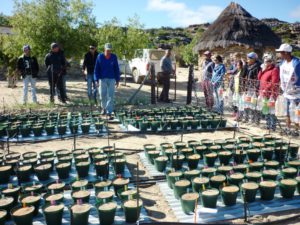
Saturday started off with a short hike to local rooibos farmers Jan and Drieka where they explained their “pot experiment”, a study by PhD students who are monitoring the growth of rooibos plants with the help of the local Rooibos farmers. The different pots get separate treatments, such as different types of soil as well as amounts of water or sun, which is hoped will show what might happen to Rooibos in the future due to climate change impacts. The whole area is famous for its organic Rooibos tea, Rooibos plants are endemic to the area, and the tea is in high demand, especially overseas. The community owns the land and also controls the entire Rooibos production process through the Heideveld Co-operative, which is becoming more and more successful. It was interesting to hear how the community have organised themselves for the benefit of all.
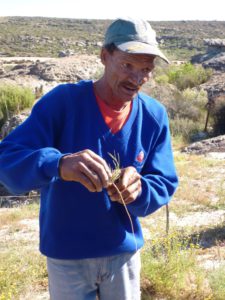
Every three months the community has a “Climate Change Preparedness” workshop with Indigo and EMG where participants exchange their experiences as small scale farmers raising questions such as: When did I plant or harvest? What has changed? And what can I do better? Those workshops are helping the participants to adapt to changing circumstances by learning from each other.
The next stop was Sonderwaterkraal, home to Drieka Koopman, who is a female pastoralist and had started a livestock monitoring project a couple of years ago. The Kuboes youth group used that opportunity to ask Drieka everything about keeping livestock and noticeable changes in the weather patterns over the past few decades. It turned out that here too, just like in the Richtersveld area, the climate has become drier with much less rainfall. It is therefore more difficult now to find good grazing areas for the animals and to maintain the health of the livestock.
Driving back to Melkkraal the participants had some time to reflect on the eventful and interesting day so everyone could share their thoughts in the next session at the Eco Lodge in the early evening. It was exciting to see how the Kuboes youth group was inspired by the Nieuwoudtville community and the young leaders in the NGOs. All participants were very comfortable with one another and happy to share their thoughts, future plans but also fears with regard to brining change and adaption projects to their own community.

The last reflection session on Sunday morning, led by Siyabonga and Shannon, in their office gave another insight in the young leaders’ minds and showed how the youth can engage with traditional knowledge from the communities’ elders in order to adapt to climate change. Berty Koopman shared ‘Berty’s Journey’ a touching film of his journey back to his parents farm at Sonderwaterkraal, and discussions with his elders regards their lives and local knowledge. It was the perfect ending to an inspiring weekend filled with learning, valuable experiences and new friends. It seems like the next “peer-to-peer learning exchange” might take place between the Kuboes youth group and their own community’s elders.

